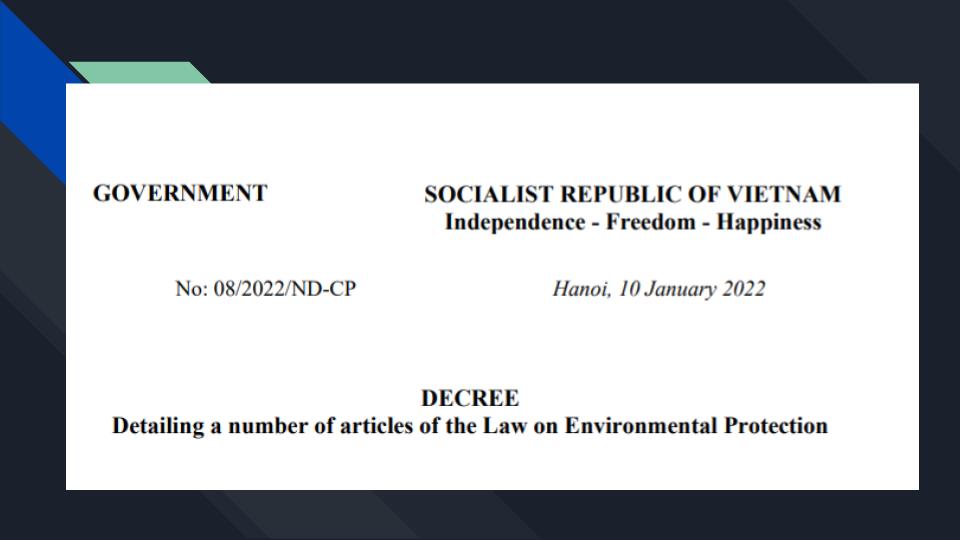On January 10, 2022, the Vietnamese government issued the new Law on Environmental Protection 2020, highlighting the responsibilities of stakeholders, providing the nation’s targets, a roadmap, and incentive schemes to achieve a circular economy. Based on this new law, the Ministry of Natural Resources and Environment (MONRE) plans to formulate a national plan for achieving a circular economy by the end of 2023, in which specific requirements would be specified.
This 2020 Law on Environmental Protection introduces the concept of the circular economy by fostering extended producer responsibility (EPR) policy, highlighting the responsibility of producers and importers to recycle products and packaging.
Following this, the government issued Article 54 and Article 55, which details requirements on collection, disposal, and recycling of waste products, plastic waste, and others.
Article 54 provides that producers and importers of products and/or packages with recycling value are responsible for collecting them for post-use recycling at the obligatory recycling rates.
This applies to both recyclable products and packaging and waste treatment.
Article 55 states that “Organizations and individuals producing and/or importing packages containing toxic substances, which are hardly recyclable or impede the collection and treatment, shall pay financial contributions to support daily-life solid waste treatment activities.”
Download Decree & Detailing a number of articles of the Law on Environmental Protection
Credit: https://vietnamlawmagazine.vn/


